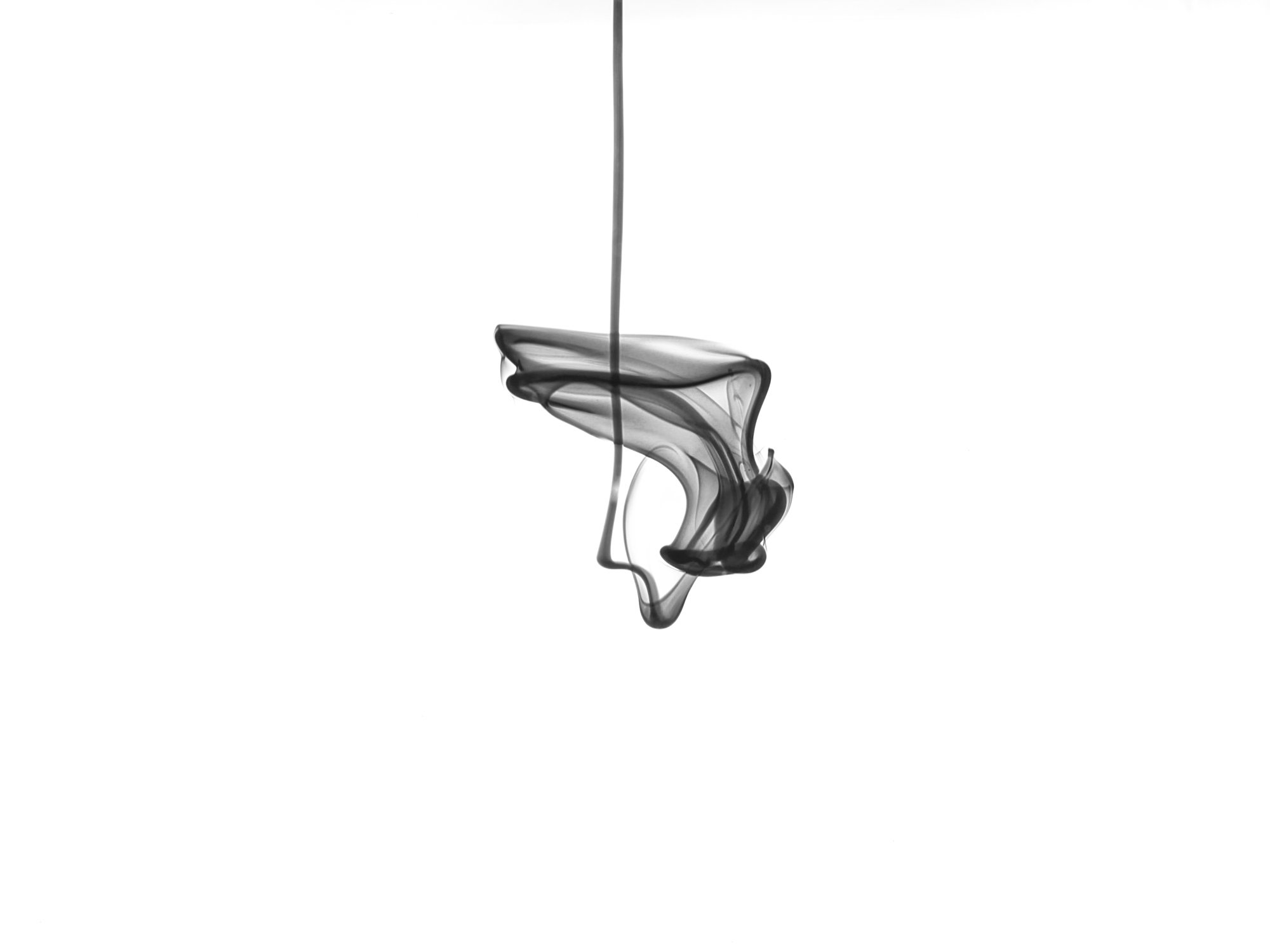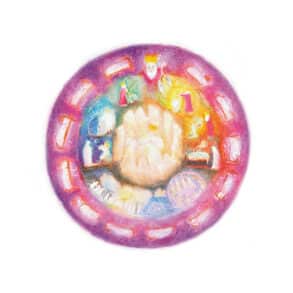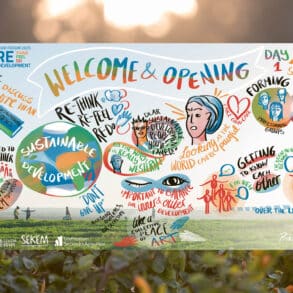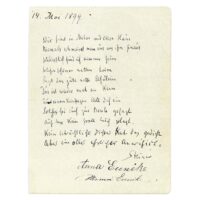The third of this four-part series further explores a resolution to the paradox of intellectual materialism. It leads to a conclusion that challenges certain tenets of modern science today: atoms and DNA do not form the foundation of the universe and life—spirit is the foundation. Intellectual materialism hides the gateway to the spiritual world for modern people, whether they know it or not. Here are links to parts one and two.
Thinking is not merely a subjective process. This conclusion addresses the second part of the paradox regarding today’s intellectual materialism that lives at the heart of the scientific enterprise. Let us turn to the first part of the paradox, which asks: is it possible to consider atoms as the ultimate material cause of the universe (e.g. what are things made of?), and the adaptations of DNA through natural selection as the ultimate efficient cause of life (e.g. how did life originate and evolve?). This first part of the paradox is focused on sense experience which meets us from without.
For a scientist today, it is a well-established fact that atoms and DNA are real things in the world. After all, multi-billion-dollar particle accelerators seem to clearly show the existence of atoms and subatomic particles, and mainstream companies like 23andMe use DNA sequencing machines to spit out nucleotide pair sequences for family trees. The problem arises when we try to bridge the gap between the conceptual experience (thinking) within us and the sense experience coming to us from without. We have established that concepts are real in the sense that pure thinking must be the foundation for all knowledge, because we can never escape thinking by pointing to something beyond thinking (i.e. the brain, the unconscious, God). However, we can also see that the sense facts derived from particle accelerators or DNA sequencing machines do not appear to be products of our thinking. It is self-evident that sense phenomena are given and meet us within the field of our conscious experience.

How, then, is the chasm between these seemingly two very different spheres of experience crossed? If we recognize that sense phenomena are one irreducible aspect of knowledge and that the concepts of thinking are another irreducible aspect of knowledge, then we need to bridge the gap between the two spheres of experience. Knowledge is the act of linking concepts through our thinking to sense phenomena. In other words, sense phenomena are a half-reality that only become facts, as is meant by science, when concepts from our thinking are linked to sense phenomena. Sense phenomena and concepts are two sides of a complete whole.
Why is this important? Because the paradox of intellectual materialism is resolved through recognizing that the sense and conceptual spheres, the outer and the inner fields of experience, constitute one whole. However, to claim this form of knowledge as a resolution to the paradox of intellectual materialism, we have had to turn the world on its head. First, we had to establish the activity of pure thinking as a real process. Second, we had to recognize that given sense phenomena in themselves do not become facts without their ideal element discovered through thinking.
This means that atoms and DNA cannot be the ultimate foundational facts of the physical world and of life, respectively, as is usually thought by scientists. Instead, atoms and DNA are abstractions that we fragment out of the whole of our experience. Of course, atoms and DNA are not merely ideas—they are linked to the sense phenomena manifest through particle accelerators and DNA sequencing machines. We do not invent the sense phenomena supporting the ideas of atom or DNA, for example, by our thinking. The trajectory of an atom is recorded in a particle accelerator regardless of whether we think about it or not. However, this does not mean that the sense phenomena supporting the existence of atoms and DNA are a complete reality before we weave concepts into these sense phenomena. The concepts are real parts too, linked to their sense counterparts. This is a startling conclusion for our materialistic age, because it means atoms and DNA are not merely independent and complete in themselves. We are like ventriloquists that forget we are using our own voices when we make atoms and DNA the ultimate causes of anything.

This view of knowledge has far-reaching consequences for the way we relate to the universe. The atom (or, more accurately, subatomic particles and their forces) and DNA cannot be ultimate explanations of the world and life because they do not illuminate pure thinking. It is not easy for scientists to see that atoms and DNA are not foundational, since the paradigm of intellectual materialism that dominates modern culture creates a dualism, whereby the questioner can be separated from the question, and then the questioner can be hidden from the process of knowledge. This twisted approach to looking for answers to our questions about the natural world occurs because intellectual materialism makes thinking illusory, while at the same time unwittingly uses thinking to make objective statements about the ultimate causes (ie. atomic forces, DNA) in the world and in life.
Intuition as a Gateway to the Spirit—the True Foundation of the World and Life
If atoms and DNA are not the ultimate explanations for the material world and the origins of life, then what path should we take to determine the ultimate explanation for these things? Since we established thinking as a real process in the world and recognize the fundamental importance of the activity of thinking in the pursuit of knowledge, we must start with thinking itself as the path to determine the foundation of the universe writ large. But, as Steiner writes in The Philosophy of Freedom, “Only through an intuition can the essence of thinking be grasped.” So, intuition becomes our path to answer life’s deepest questions. When we both acknowledge and receive intuition as the ultimate organ of knowledge, we break free from intellectual materialism and arrive at a profound insight that stands outside the entire paradigm of intellectual materialism and flies in the face of modern science. This insight, springing from intuition, is that it is not atoms and DNA that are the foundation of the material world and of life, but spirit!
Modern science has eliminated spirit from knowledge by pulling the wool over its eyes and adopting intellectual materialism that renders thinking a merely subjective phenomena, dependent on objective material processes. Objective knowledge deals with things existing in space and enduring in time—thoughts cannot be measured with a ruler in space nor timed with a stopwatch, so they must be illusory. However, this essay aims to show that it is impossible to both deem thoughts ephemeral foam on ocean waves but then proceed to build a modern science from this foam. When thinking is given its proper status in scientific pursuits, we overcome intellectual materialism and come to discover the spirit as the only satisfying answer to the question: “what is the foundation of the universe?”

Steiner writes in The Philosophy of Freedom, “Intuition is the conscious experience—in pure spirit—of a purely spiritual content.” Intuition lifts us to the spirit and allows us to experience purely spiritual content. We can say much more. Intuitive experiences unite the two separate spheres of experience (e.g. outer sense phenomena and inner cognition) that the dualism of intellectual materialism keeps separate. Intuition can restore the division between Self and Other.
When intuition shows that spirit is the true foundation of the universe, then it is possible to put the atom and DNA in their proper context. Breaking matter into little pieces and carefully observing the resultant behavior of the quantum particles certainly adds to the body of knowledge we call physics. Analyzing nucleotide pair sequences in DNA certainly adds to the body of knowledge about the organic relationships between individuals within the entire genealogical tree. However, the physics and biology of today turn exclusively to outer sense phenomena and utilize the intellect to establish conceptual relationships between these sense phenomena. These sciences rely on the intellect but do not attempt to look at the intellect itself.
We must ask the question: “why can we grasp the sense data which supports the ideas of atoms and DNA in the first place?” Smashing matter into atoms does not penetrate into why human beings can grasp the ideas of quantum mechanics. DNA does not penetrate into the absolute nature of speciation itself. Because atoms and DNA are not complete things—the concepts from our thinking belong to them as well—asking questions about the foundation of the universe requires a science of intuition: a spiritual science. Such a spiritual science leads us to know our essential humanity in the whole order of the universe. Expecting the sciences of physics and biology as practiced today to tell us about ourselves is like using a chemistry set to study the ink of the letters with which a Shakespearean play is printed to determine the meaning of the play itself. These sciences do not know themselves—they can never know the foundation of the universe or of life. It is illusory to think so. Instead, we must use intuitive thinking to engage the spirit directly to understand how the spiritual works into the outer world of sense and the inner world of soul. The consequences of this approach to the questions of life radically alters the way we relate to the world and to ourselves.
Photo (title image) Max Kleinen from unsplash










In my own research and experience I believe intuition already exists in the science the Writer refers to. It might be a useful exercise to explore what limits its application to other areas, rather than perhaps assert to a scientist he doesn’t have any. I would be willing to follow up on this if anyone feels drawn to discuss further.
see :
“Big Bang” according to the 19th century polish poet J. Słowacki
https://www.salon24.pl/u/edalward/1334289,big-bang-according-to-the-19th-century-polish-poet-j-slowacki